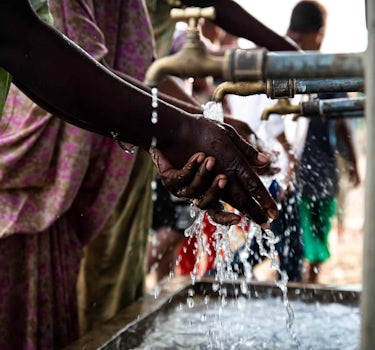Press release – Interfood Group invests in the first carbon credits on Dutch soil
The first credits of the Rabo Carbon Bank on Dutch and American soil have been sold to five companies including Interfood. 90% of the proceeds from the carbon credits will go to participating farmers who are making their farms more sustainable and thus incentivizing a reduction in Co2 emissions. This is part of Rabobank's first pilot project involving the reduction of greenhouse gases by Dutch and American farmers.
Earning money by becoming more sustainable
In June 2021, dairy farmers and arable farmers received an advance from the Rabo Carbon Bank to make their operations more sustainable. Since then, they have plowed less deeply, used less artificial fertilizer and sown herb-rich grassland. Together with project partner Wij.land, Rabo Carbon Bank is assisting the farmers to implement these practices on their farms. Barbara Baarsma, CEO of the Rabo Carbon Bank: "This ensures a healthy soil that retains more carbon. In tackling climate change, farmers are too often seen as part of the problem, when in fact they are part of the solution. The revenues from the credits can be invested by farmers in the transition to sustainable agriculture." Wij.land calculates the climate gains and, together with the Rabo Carbon Bank, ensures that the lessons from the project are shared with other farmers and interested parties.
Making sustainability profitable
"Making agriculture more sustainable is not only up to the farmer," says Baarsma. "That is the opinion of not only Rabobank, but also our customers who have bought the credits and thus make sustainability profitable for participating farmers." To qualify for the carbon credits, Rabo Carbon Bank imposes requirements on the companies with which the bank works. For example, they all commit to reducing CO2 in their own operations including its supply chain. The pilot scheme in the Netherlands and the United States is entering its second year of its initial 3-year trial period. Baarsma: "This is the future of farming: regenerative farming not only improves biodiversity and thus the nutritional value of the products, but also rewards farmers for their ecosystem services. To make the transition to sustainable agriculture that we all want, the price of a credit still has to go up and the workload, such as collecting data, has to come down. We are working on that now."
Interfood and Rabo Carbon Bank
As a global leading supplier in dairy ingredients and a responsible value chain partner, Interfood Group has set its sights on contributing to the solution of this worldwide challenge. By investing in regenerative agriculture, we can complement our own efforts in reducing GHG through meaningful carbon credits that are related to our activities. We believe these lessons learned will be valuable for our dairy partners in advancing their sustainability journey.
More insights
You may also be interested in one of the following pages:


